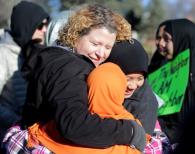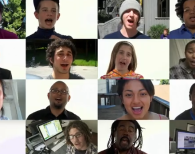Across the country, in response to a number of recent hate crimes, people are coming together to stand with their Muslim neighbors and friends. From Billings, MT to Oak Creek, WI, local Not In Our Town groups are part of these efforts to rebuke the Islamophobia which has increased in the wake of recent terror attacks, and to make their communities safer for all residents.
Bloomington
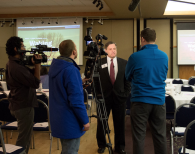
In March, we brought the inspiring story of Oak Creek, WI's unity in the aftermath of a hate crime to three Midwestern cities.
We returned to Oak Creek, WI to premiere our 30-minute documentary, Waking in Oak Creek, on March 13; traveled on March 25 to Bloomington-Normal, IL, a city that first sparked Not In Our Town activities in their community 18 years ago; and finally to executive producer Patrice O’Neill’s hometown of St. Louis, MO on March 27 for a screening and discussion. The response has been overwhelmingly positive in each of these towns.
These three events are the first of hundreds to follow. Follow the lead of these Not In Our Town communities and bring Waking in Oak Creek to your town. Click here to request the DVD and discussion guides.
Oak Creek, Wisconsin
Milwaukee’s FOX6 covered the March premiere.
After the event, Oak Creek resident Robert Sagan said, “If you get a chance to view Waking in Oak Creek, all I can say is, ‘GO SEE IT.’ Hopefully it will leave an impact and wake you to your community, your town, your state, your country and yes your world. That the events of people anywhere can and should effect you too.”
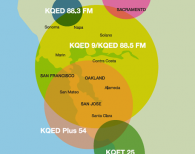
Watch the opening scenes to Class Actions by clicking on the image above.
"Bullying, racism, discrimination, hate. You know it's out there. It makes you cringe. But what are you gonna do about it?"
--MTV post on Not In Our Town: Class Actions
KQED will broadcast Not In Our Town: Class Actions on Monday, March 19 at 7:30 p.m. The broadcast is an opportunity to open the conversation about how to stop hate and bullying. Join us in getting a Bay Area discussion going in your schools and communities.
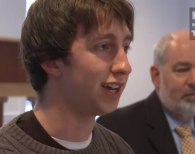
"Part of the motivation of these attacks is to isolate those who they are attacking. To make the victims feel victimized. But thanks to the response of Bloomington United and the community we are made to feel that this is an attack not only on us but the values of the whole community." —Bloomington, Indiana resident
Watch Bloomington United: Ready to Respond to Hate
After Ku Klux Klan flyers blanket an Indiana University campus neighborhood, Rabbi Sue Silberberg leads Bloomington United as they plan a community response.
This is a DVD extra from the PBS program, Not In Our Town: Class Actions. For more information on the film, visit niot.org/ClassActions.
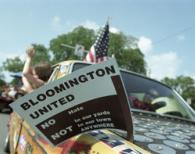
"Bloomington, Indiana: United and Ready to Respond to Hate" is part of the Not In Our Town program, Class Actions, that premieres nationwide on PBS stations in February 2012.
When a string of anti-Semitic acts rocked the college town of Bloomington, Ind. just before Hanukkah in 2010, the town knew how to respond.
Bloomington’s quick and supportive response from the city’s university, police, city, and community leaders comes from experience. The community group Bloomington United was first brought together by the mayor when former Indiana University student and white supremacist Ben Smith started spreading white supremacist and anti-Semitic flyers around town. Several months later, Korean doctoral student Won-Joon Yoon was fatally shot on his way to Bloomington’s Korean Methodist Church, the last killing during Smith’s two-state shooting spree.

Right before the Thanksgiving holiday, we shipped off our next film, Not In Our Town: Class Actions to PBS.
Not in Our Town: Class Actions features three stories of students and their communities standing together to stop hate and bullying. Premieres on PBS stations in 2012.
Fifty years after James Meredith became the first black student at the segregated University of Mississippi, football fans resurface the chant, “The South will rise again.” Student leaders confront the divisive practice, sparking a campus visit from the Ku Klux Klan and a peaceful counter demonstration led by the student organization One Mississippi. Photo Credit: William Bender
The college town of Bloomington, Ind., shocked after a Korean student was murdered by a white supremacist a decade ago, bands together again after anti-Semitic attacks on the eve of Hanukkah. Photo Credit: Bloomington Herald Times
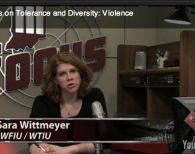
In late November and early December, the city of Bloomington, Ind. stood behind the Jewish community after several acts of anti-Semitic vandalism. Rocks were thrown into the windows of the Chabad and Hillel houses at Indiana University. A glass case listing Jewish Studies faculty was broken. Swastikas were discovered in a student dorm. Then, just days before Hanukkah, Hebrew texts from the university and county libraries were taken to men’s bathrooms and urinated on. Bloomington—a college town—received national attention.
Bloomington’s quick and supportive response from the city’s university, police, city, and community leaders came from experience. Bloomington United, in particular, banded together after the mayor’s office approached local leaders to form a coalition in 1999. At the time, former Indiana University student and white supremacist Ben Smith went on a two-state shooting spree, which included the killing of a Korean graduate student at Indiana University. Read how the community responded to the recent acts.
On Jan. 27, Indiana Public Media's program, InFocus, discussed Diversity and Tolerance. Host Sara Wittmeyer interviewed Not In Our Town Executive Director Jonathan Bernstein on the show.

The message of NIOT is Reaching the Classrooms and Schools of Bloomington-Normal, IL By Marc Miller, NIOT Bloomington-Normal Member
It’s parent night at at the neighborhood elementary school. Children, their parents in tow, rush from room to room, excited to show off their drawings and projects. Parents, anxious to know more about their children’s progress, take in the posters and decorations as they move from class to class. But for some, a simple table in the corridor attracts their attention. The banner draped over it says: Take a Stand Against Racism! Sign The Pledge.
“What’s this?” says a student, and a table volunteer cheerfully describes the Not In Our Town program. There are No Racism stickers for notebooks and lockers; larger stickers for bumpers and windows; even temporary tatoos. For parents, there are refrigerator cards with talking points defining common terms: predjudice, stereotype, discrimination; and a simpler set of talking points aimed at the primary grades.
